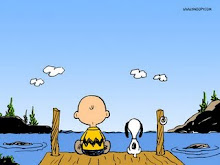Conspirator

- Brian
- I went out there in search of experience To taste and to touch and to feel as much As a man can before he repents.

"To know who I am is a species of knowing where I stand. My identity is defined by the commitments and identifications which provide the frame or horizon within which I can try to determine from case to case what is good, or valuable, or what ought to be done, or what I endorse or oppose. In other words, it is the horizon within which I am capable of taking a stand" (27).Possible manners in which we might identify ourselves include religion (e.g., Catholic, Muslim), nationality (e.g., British, Chinese) and so on. By claiming such a background, a person is not simply stating that they are strongly attached to such a way of life, but also they are identifying the frame within which they determine where they stand on questions of what is good, worthwhile, admirable, or of value. "Put counterfactually, they are saying that were they to lose this commitment or identification...they wouldn't know anymore, for any important range of questions, what the significance of things was for them" (27). This situation results in an identity crises, a form of disorientation, which a person expresses in terms of not know who they are. This can also be seen as a radical uncertainty of where they stand. The importance of a framework to a person's (moral) life is thus made obvious in this example. Without a frame or horizon, the meaning of the possibilities (i.e., the good vs. the bad, meaningful vs. the meaningless or trivial, etc.) is unfixed or undetermined, which creates a frightening and/or painful experience.
